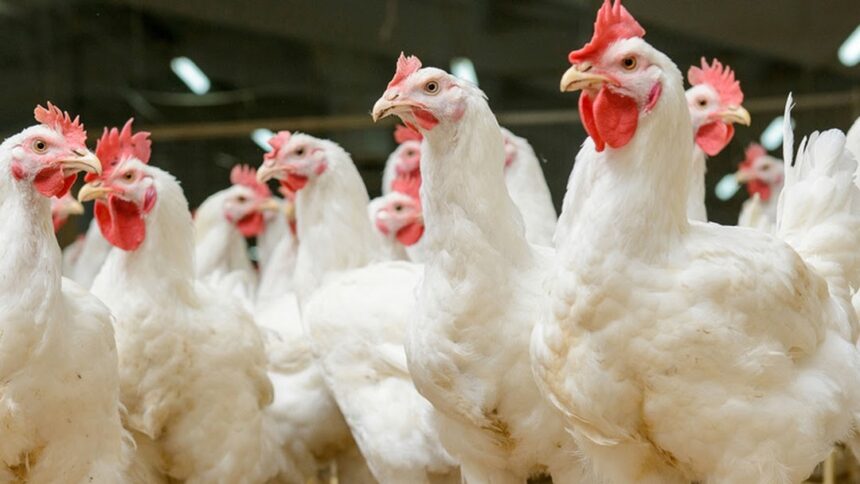The success of any poultry production enterprise is significantly influenced by the health measures implemented by the farmer to ensure the continual safety of the bird enterprise.
Many times, farmers without a health programme expose their ventures to problems such as bird ailments, mortality and retarded or stunted growth.
Developing a simple, yet effective health programme for birds is a factor of success in poultry farming.
It usually begins with developing biosecurity measures.
The first measure usually involves fencing off the area around the chicken coop/s to limit or restrict access.
This is followed by the setting up of a disinfecting station, a footbath and a handwash, comprising water-based disinfectants such as Viral Kill, F10 SC Veterinary Disinfectant or Logisan at the entrance of the premises.
Additionally, a vaccination programme must be established for the poultry enterprise to prevent diseases and avoid production interruptions on the farm.
Identifying and knowing the diseases affecting poultry is essential.
Newcastle, Infectious Bronchitis, Infectious Coryza (IC) and Infectious Bursal Disease (Gumboro disease) are among the common poultry diseases in Namibia.
Occasionally, there are outbreaks of Avian Influenza.
Therefore, the vaccination programme should cover these diseases.
Farmers must ensure that at one-day-old, chicks are vaccinated against Newcastle Disease (ND) and Gumboro Disease by using ND Clone 30 and Gumboro D78 via drinking water, or coarse spray via eye drops or mist spray on their heads.
A week later, when the chicks are about seven days old, they can be vaccinated against Infectious Bronchitis (IB) by using the IB Ma5 vaccine via drinking water, or a coarse spray on their heads.
After a period of one to two weeks, it is recommended to administer the booster vaccines through drinking water, a fine or coarse spray, or eye drops.
The chickens can be given a second dose of ND Clone 30 to prevent ND, IB Ma5 to prevent IB disease, and Gumboro D78 to prevent Bursal Infectious (Gumboro Disease).
At day 35, chickens must be administered 0.5 millilitres (ml) of Nobilis Coryza subcutaneously (under the skin) into the lower part of the back of the neck to prevent IC.
This can be repeated after four weeks to ensure full immunity against IC disease.
To enhance the health programme on a poultry farm, farmers are advised to always stock up on antimicrobial remedies, such as Swa-Doxy-Mycin, Doxy Maxx 50%, Doxycip 50% and Pulmdox 50 OSP, which can be used to treat common bacterial respiratory diseases and gastrointestinal infections.
As a precautionary measure, farmers are advised to construct sick bays (isolation centres), where all birds with clinical signs of diseases can be kept in isolation to minimise the spread of contagious poultry diseases among the flock.
Parasite control remedies are also necessary when designing a health programme.
Therefore, it is vital to stock up on remedies such as Piperazine to control internal parasites and Karbadust to fend off ticks and other external parasites, enabling birds to produce with minimal stress.
In addition, farmers must include supplements in their health programme.
Supplements such as Opti-boost, Carmino + and Stresspac help meet the nutritional requirements of their birds by providing the much-needed trace elements such as iron, calcium, and a range of vitamins as well as other minerals.
Furthermore, once the production cycle of the birds is complete, farmers must sterilise and disinfect the coops before introducing a new group of chickens or birds to the same housing structures.
Implementing a good health programme is a farmer’s gateway towards viable poultry farming for profit, as it serves as a protective measure against diseases that can significantly impact production.
*Hanks Saisai is Agribank’s technical advisor on crops and poultry.


